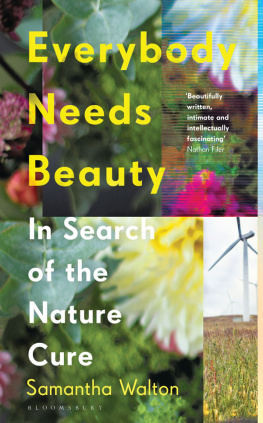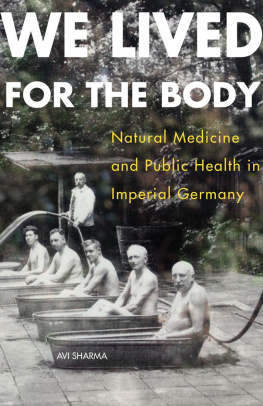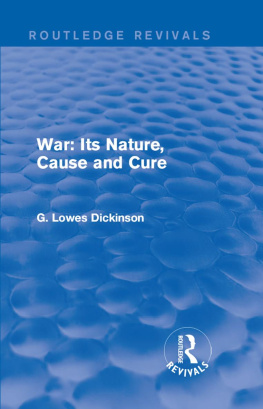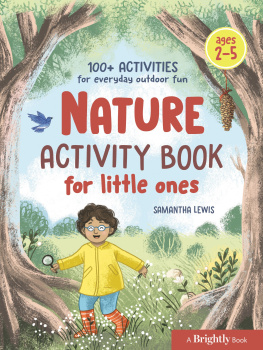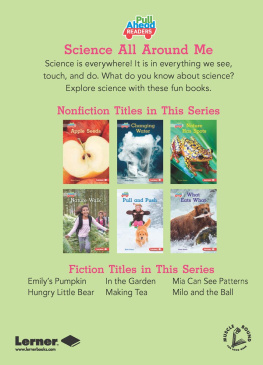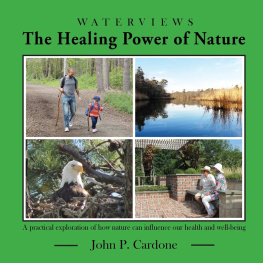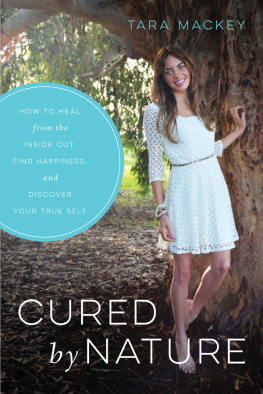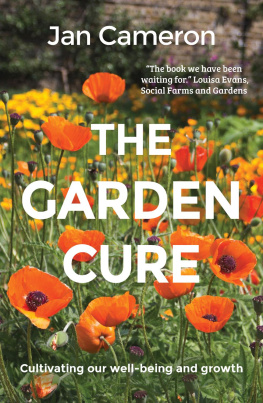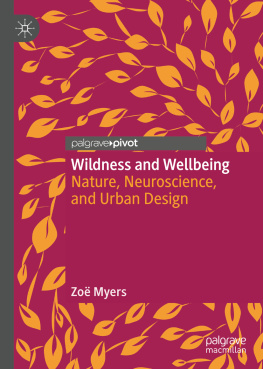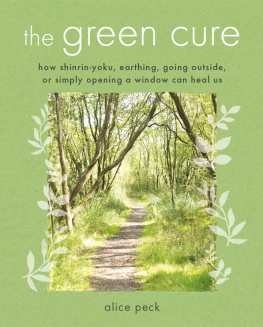
Everybody Needs Beauty

BLOOMSBURY CIRCUS
Bloomsbury Publishing Plc
50 Bedford Square, London, WC1B 3DP, UK
29 Earlsfort Terrace, Dublin 2, Ireland
BLOOMSBURY, BLOOMSBURY CIRCUS and the Bloomsbury Circus are trademarks of Bloomsbury Publishing Plc
First published in Great Britain 2021
This electronic edition first published in 2021
Copyright Samantha Walton, 2021
Samantha Walton has asserted her right under the Copyright, Designs and Patents Act, 1988, to be identified as Author of this work
All rights reserved. No part of this publication may be reproduced or transmitted in any form or by any means, electronic or mechanical, including photocopying, recording, or any information storage or retrieval system, without prior permission in writing from the publishers
Bloomsbury Publishing Plc does not have any control over, or responsibility for, any third-party websites referred to in this book. All internet addresses given in this book were correct at the time of going to press. The author and publisher regret any inconvenience caused if addresses have changed or sites have ceased to exist, but can accept no responsibility for any such changes
A catalogue record for this book is available from the British Library
isbn: hb : 978-1-5266-2072-9; tpb : 978-1-5266-2071-2; ebook : 978-1-5266-2070-5; epdf : 978-1-5266-4528-9
To find out more about our authors and books visit www.bloomsbury.com and sign up for our newsletters
by the same author
Guilty But Insane: Mind and Law in Golden Age Detective Fiction
Self Heal
The Living World: Nan Shepherd and Environmental Thought
Contents
An Ancient Ritual
I set out at 7 a.m. Midsummer has just passed, so the sun rose hours ago and is blazing high in the sky above me as I wheel my bike out onto the road. I usually love the hot weather. Like many people living with a wet, changeable island climate, I rush outside at the first hint of sun. But were currently in the middle of a long, lingering heatwave, the northern hemispheres joint hottest summer on record. For six weeks daytime temperatures will soar above 30C. Flowers in window boxes are withering. Clothes stick to the skin. The lawns of Castle Park, Bristols favourite drinking spot, are rubbed to dust.
As I speed down the citys network of cycle paths, like arteries running from east to west, I try to ignore the wilted plants, smoke fumes, and rush-hour traffic crowding the streets for another days work. Office blocks and shopping centres whizz by, followed by flyovers and industrial estates. Finally I reach the city limits. The fields may be sun-bleached more victims of the heatwave but still, Im grateful. Im leaving the concrete and tarmac, putting the smell of petrol and hot tar behind me.
From the city limits, it will take me another hour to reach my destination. According to the map on my phone, the route will take me past farms, fields, along the banks of a river, before it follows snaking train tracks deep into north Somerset. Im already soaked in sweat, but I cant turn back now. Escaping the city, Im taking the first step in a ritual thats at once staggeringly ancient, and absolutely modern. Im going to nature in search of health.
Theres nothing exactly wrong with me, not at the moment. But recently, Ive noticed an interest in nature cures emerging everywhere. Schools are taking their classrooms outdoors. Hospitals are being retrofitted with gardens and green spaces for patients to relax and unwind. Mental health charities advise us to get our daily dose of Vitamin N, to find ways to switch off in forests and nature reserves. Natural consultants sell wild excursions to businesses, promising that their workforce will become more productive, creative and resilient. In the tiny Scottish archipelago of Shetland, it is now possible to walk into a doctors surgery with symptoms of depression, anxiety or stress, and walk out with a natural prescription, including advice on how to connect with the living world on Shetlands windswept shores.
As sudden as this fashion seems, the idea that nature might be healing is nothing new. Tales of people who find comfort, restoration and meaning in natural settings have been with us for a very long time. We can credit the Romantic poets for inventing gentle, healing Nature a place of innocence that teaches us to be good, and where we can get in touch with our own best selves. But look further back, and our deepest cultural memories, the oldest myths and legends of Western cultures, tell us nature may be curative to mind and soul. The ancient Greeks and Romans had their bucolic poetry, tales of the farm and forest that enticed citizens outside the city walls, promising a purer, more sensuous and thrilling kind of life. The long shadow of their rural paradise, Arcadia, hangs over literature and art. Its not just another Eden. The pastoral is a golden place where people, animals, plants, and earth, air and water the elemental forces of ancient medicine all coexist in happy sympathy.
Like so many others, nature has been tempting me away from cities, offices and the comfort of my home for the best part of my life. I never used to think about these journeys as a quest for health, or even a medical cure. My early influences were literary, not scientific. I grew up reading books about nature: cheering on the Animals of Farthing Wood, adventuring with the Famous Five, then moving on to the desolate moors of the Bronts and the ecstatic woods and mountains of Shelley and Wordsworth. Stories taught me to crave wild, free places. I learned to see my moods mirrored in nature, and trained myself to be responsive to the subtle emotional influences of plants, animals and weather. Literary landscapes became part of my own psychological landscape, giving shape and name to the messy, complicated emotions of growing up. But growing up in the suburbs, within earshot of the M25, forests and mountains werent part of my daily reality. I hunted for wild places among the mosaic of intensively ploughed fields that make up Londons precarious green belt as testing grounds for the emotions Id read about in books. Could these grand feelings be for me too? Sometimes, the slivers of nature I was able to grasp at made me feel better. Sometimes, they gave me a place to be angry, lost and confused.
The recent explosion of interest in nature cures suggests that science is catching up with the old stories or finally finding evidence to prove things that have long felt natural and commonsense. But its more complicated than that. For a start, what does it mean to go to nature? Where is it at the end of the garden, beyond the tarmac fringes of the city, at the end of a road, the summit of a mountain, or muddy footpaths slipping between housing estates, road and fields? These questions matter, because more people around 55 per cent of the worlds population live in cities, and this is only expected to rise. The old definition of nature as a world separate from humanity may not mean much in a world of microplastics, urban sprawl and climate change.
Can the nature cure survive the loss of a pure, untouched green world? Maybe the idea of that luminous wilderness is just too hard to let go of, so we pretend to be more intimate with nature than ever, even as it is engulfed by crisis. Or maybe the return of the nature cure is a sign that a new, exciting form of environmentalism is emerging. The conservation movement has been accused, sometimes fairly, of prioritising nature over people: putting wildlife before transport links, or protecting charismatic species like elephants and lions, but not the communities who live dangerously close to them. But it shouldnt be a matter of choosing one over the other. The human vs. nature conflict is a false dichotomy, and we urgently need to move beyond it. What if the nature cure could help? What if it could bring us closer to caring for that other world of oceans and vegetation, atmosphere and ice, wildlife and microorganisms with which were bound together, with whose health and fate our own is absolutely entangled?
Next page
